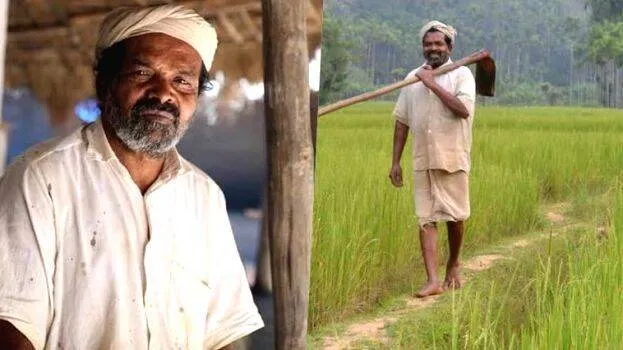

Our Agriculture Department spends crores of rupees to promote farming. Large research institutions, both at the state and central levels, operate here to scientifically enhance agriculture. However, with each passing year, agricultural land and farming are declining instead of increasing. In the past, people engaged in farming to obtain food and earn a small income for survival. Today, 90% of the rice and vegetables consumed by Malayalis come from other states. Except for cash crops, traditional farming is no longer a viable source of income. Given the current wages, fertilizer costs, and other expenses, farming is not only unprofitable but also leads to losses.
Farmer suicides are no longer confined to North India; they are becoming frequent in Kerala as well. The reality is that the departments responsible for agriculture often ignore or fail to support the small-scale farmers who are actually engaged in farming. This needs to change, and a good starting point could be Cheruvayal Raman, a "gene banker" of rice varieties. Despite receiving the prestigious Padma Shri, he continues to struggle to make ends meet. As a member of the Kurichya community, agriculture has been his traditional occupation. He has cultivated and preserved 45 varieties of traditional rice seeds. It is unclear how many such varieties our research institutions have preserved. The authorities always seem more interested in promoting hybrid seeds rather than conserving indigenous ones.
A recent Kerala Kaumudi article by Wayanad correspondent Pradeep Mananthavady, titled 'Padma Shri won't help make ends meet,' highlighted Cheruvayal Raman’s plight. The article revealed that, despite being a custodian of heritage organic rice seeds, he lacks a steady income. Even at the age of 75, he has to toil hard daily to survive. After receiving the Padma Shri in 2023, he was invited to seminars in Dubai and Brazil and frequently called to give lectures on traditional rice conservation. However, he didn't receive any monetary benefits for these engagements. Some people even take seeds from him without returning them. In short, apart from the occasional Rs 1,600 pension from the Kerala government, he has no other income. Even after this news was published, the Agriculture Department has not offered any support.
Meanwhile, with the intervention of Acharyasri Rajesh, a prominent Vedic scholar from the Kashyapa Veda Research Foundation in Kozhikode, Raman has now secured a monthly financial aid of Rs 11,000. This support comes from the MDH Mahashay Dharampal Trust in Delhi, and the first instalment has already been handed over to him. His house is in a poor condition, flooding during the rainy season. Despite all hardships, he continues to love and protect traditional farming in Kerala, standing as a symbol of a true farmer. The Kerala government must take responsibility for preserving both Raman and his invaluable seed collection. Agricultural universities should include his work as a subject of study. A small fraction of the massive salary expenses of the Agriculture Department should be allocated to support grassroots farmers like him. If necessary, new departments should be created to assist such individuals. Without such efforts, the plight of farmers like Cheruvayal Raman will not end.